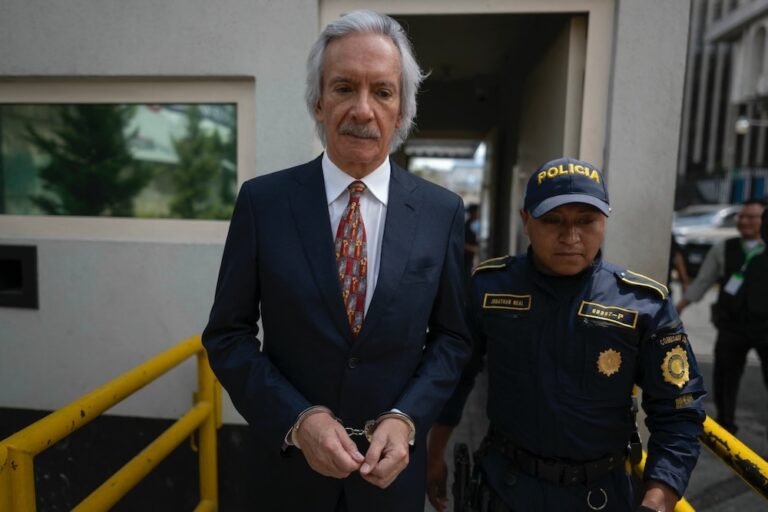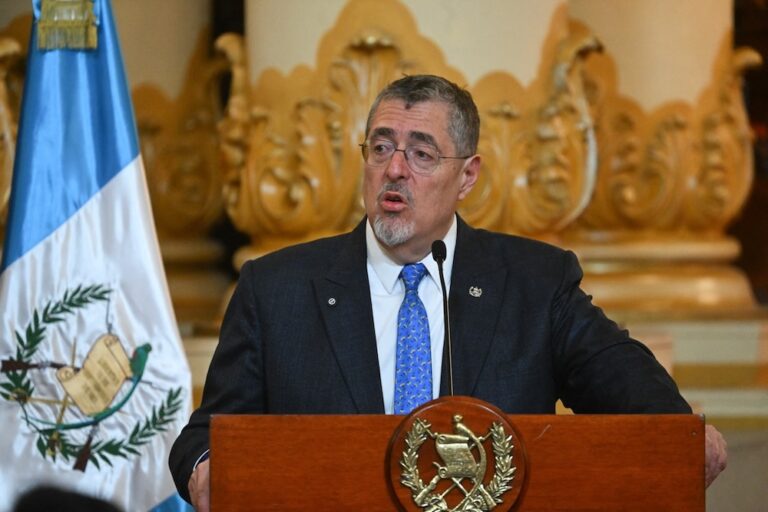(RSF/IFEX) – On 10 June 2002, RSF expressed concern about death threats received by four journalists and seven human rights activists in Guatemala and called on the authorities to thoroughly investigate the case and arrest and punish those responsible. “This intimidation is a new blow to press freedom in Guatemala, where human rights organisations and […]
(RSF/IFEX) – On 10 June 2002, RSF expressed concern about death threats received by four journalists and seven human rights activists in Guatemala and called on the authorities to thoroughly investigate the case and arrest and punish those responsible.
“This intimidation is a new blow to press freedom in Guatemala, where human rights organisations and those reporting violations are increasingly under constant pressure,” said RSF Secretary-General Robert Ménard in a letter to Interior Minister Eduardo Arévalo Lacs.
Ménard noted that freelance journalist David Herrera was forced to go into exile in April after investigating human rights violations by the army during the country’s 1960-96 civil war (see IFEX alerts of 24 and 12 April 2002). According to RSF, in 2001, approximately 20 journalists were threatened or physically attacked and the staff of several media were subjected to intimidation in Guatemala.
The four journalists – Abner Gouz, of the daily “El Periodico”, Rosa María Bolaños, of the daily “Siglo XXI”, Ronaldo Robles and Marielos Monzon, of the radio station Emisoras Unidas, along with seven human rights activists, received death threats on 7 June in an anonymous statement sent to the Alliance Against Impunity and to the newsrooms of the above-mentioned media outlets. The 11 persons were accused of being “enemies of the nation” and were threatened with “extermination” by “true Guatemalans.”
The threats came after the 27 to 31 May visit to Guatemala by the United Nations Special Rapporteur on Human Rights Defenders, Hina Jilani, who was also mentioned in the statement. At the end of her visit, she said the existence of clandestine armed groups, backed by the army, who threaten human rights activists is “very serious and worrying.” She called on the government to track them down and bring them under control. The 11 individuals who received the threats have formally complained to the country’s human rights prosecutor, Tatiana Morales.
In February 1999, Guatemala’s Truth Commission (Comision para la Esclarecimiento Historico – CEH) said that the army was responsible for 93 percent of the massacres perpetrated during the civil war, in which nearly 200,000 people were killed or disappeared. However, the government has refused to implement the commission’s recommendations, notably its call to set up a special inquiry into the army to purge those responsible for such abuses.


